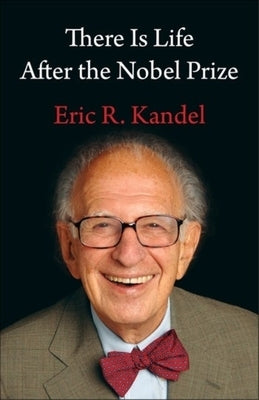Columbia University Press
There Is Life After the Nobel Prize
There Is Life After the Nobel Prize
Couldn't load pickup availability
One day in 1996, the neuroscientist Eric R. Kandel took a call from his project officer at the National Institute of Mental Health, who informed him that he had been awarded a key grant.
Also, the officer said, he and his colleagues thought Kandel would win the Nobel Prize. "I hope not soon," Kandel's wife, Denise, said when she heard this. Sociologists had found that Nobel recipients often did not contribute much more to science, she explained.
In this book, Kandel recounts his remarkable career since receiving the Nobel in 2000- or his experience of proving to his wife that he was not yet "completely dead intellectually." He takes readers through his lab's scientific advances, including research into how long-term memory is stored in the brain and age-related memory loss, as well as the neuroscience of drug addiction and schizophrenia.
Kandel relates how the Nobel gave him the opportunity to reach a far larger audience, which in turn allowed him to discover and pursue new directions. He describes his efforts to promote public understanding of science and to put brain science and art into conversation.
Kandel also discusses his return to Austria, which he had fled as a child, and observing its coming to terms with the Nazi period. Showcasing Kandel's accomplishments, erudition, and wit, There Is Life After the Nobel Prize is a candid account of the working life of an acclaimed scientist.
Author: Eric Kandel
Publisher: Columbia University Press
Published: 12/07/2021
Pages: 112
Binding Type: Hardcover
Weight: 0.55lbs
Size: 8.10h x 5.30w x 0.80d
ISBN: 9780231200141
About the Author
Eric R. Kandel is University Professor and Kavli Professor in the Departments of Neuroscience, Biochemistry and Molecular Biophysics, and Psychiatry at Columbia University, where he is also director of the Kavli Institute for Brain Science and codirector of the Mortimer B. Zuckerman Mind Brain Behavior Institute. In 2000, he was awarded the Nobel Prize in Physiology or Medicine. His books include Reductionism in Art and Brain Science: Bridging the Two Cultures (Columbia, 2016).
Share


